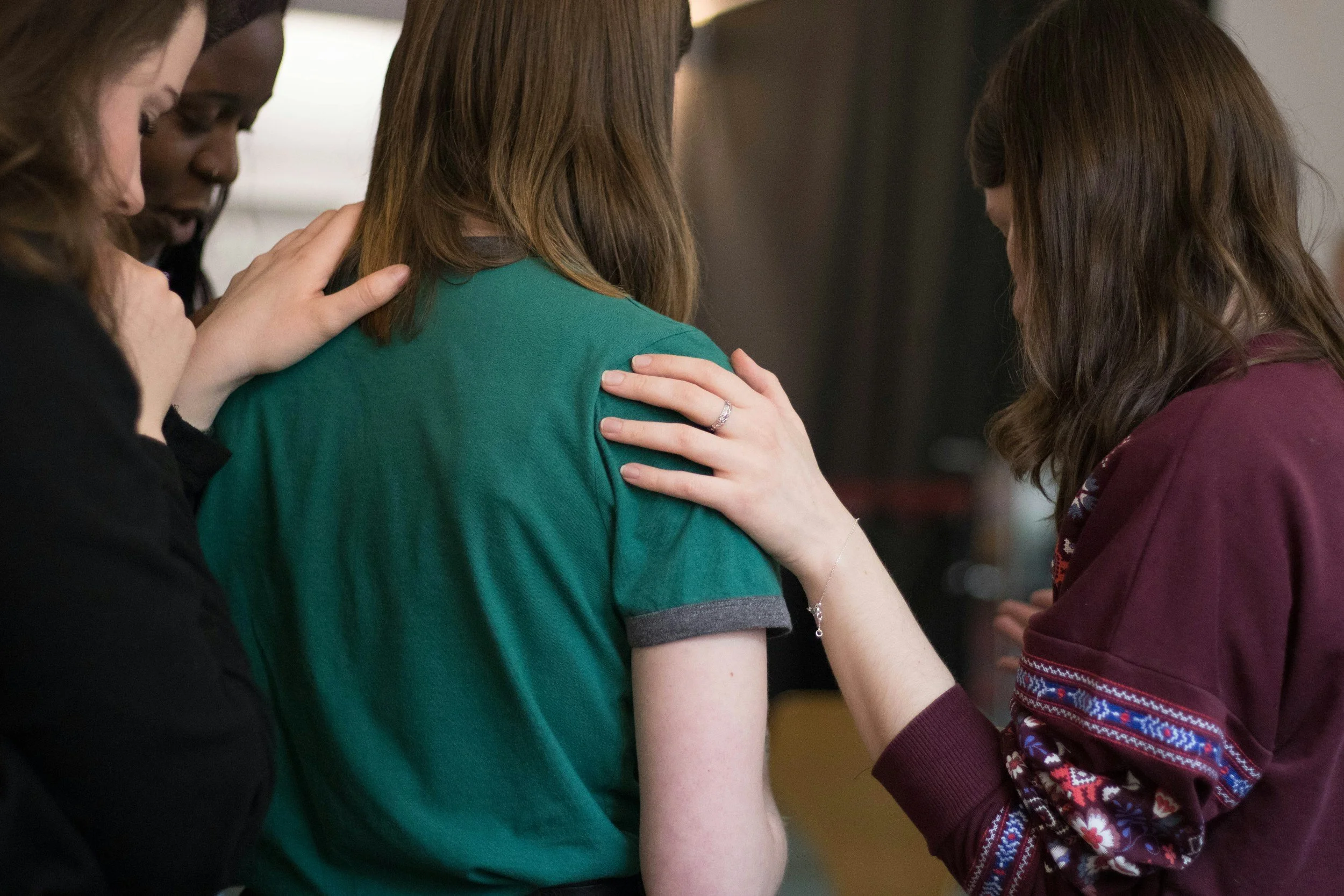
How Internal Family Systems Therapy Supports Addiction Recovery
Addiction is often misunderstood as a weakness, but in IFS therapy it’s seen as a part of you trying to cope with overwhelming pain. Discover how IFS helps heal the root causes of addiction and supports lasting recovery.

Healing Attachment Wounds with Internal Family Systems Therapy
Early attachment experiences shape how we connect to others. When those bonds are broken or painful, they can leave lasting wounds. Internal Family Systems (IFS) therapy offers a path to healing attachment injuries and creating healthier relationships.

The Role of the Self in Internal Family Systems Therapy
At the heart of Internal Family Systems (IFS) therapy is the Self — the calm, compassionate core of who you are. Discover how connecting with your Self helps you heal wounded parts, reduce inner conflict, and live more authentically.

Can Internal Family Systems Therapy Help with Anxiety?
Anxiety often feels like an endless cycle of worry and tension. Internal Family Systems (IFS) therapy helps by identifying the protective parts behind anxiety and teaching you how to lead from your calm, grounded Self.

How Internal Family Systems Helps Heal Childhood Trauma
Childhood trauma can leave lasting emotional scars, but Internal Family Systems (IFS) therapy offers a gentle and effective way to heal. By connecting with your inner parts and strengthening your Self, IFS helps you release pain and build resilience.

What Is Internal Family Systems (IFS) Therapy and How Does It Work?
Internal Family Systems (IFS) therapy is a powerful approach to healing that helps you understand and connect with different “parts” of yourself. Whether you’re struggling with anxiety, trauma, or relationships, IFS provides a path toward self-compassion and lasting change.

What to Do If You Have a Bad Reaction After an ART Session
Accelerated Resolution Therapy (ART) can be life-changing, but some people may experience strong emotional or physical reactions afterward. These responses don’t mean something has gone wrong—they often signal deep processing and healing. Learn what to expect, how to care for yourself if you feel unsettled after an ART session, and when to reach out for support.

What to Do After an Accelerated Resolution Therapy (ART) Session
Completing an Accelerated Resolution Therapy (ART) session can feel like a turning point. But what happens after the session is just as important as what takes place in the therapy room. Learn how to care for yourself, what to expect, and how to support your ongoing healing after ART.

ART for Healing Low Self-Esteem Caused by Childhood Trauma
Childhood trauma can leave lasting imprints on self-esteem, shaping negative beliefs about one’s worth and abilities. Accelerated Resolution Therapy (ART) provides a rapid, evidence-based approach to process these early experiences, release deeply held emotional pain, and rebuild self-confidence. By targeting the root causes of low self-esteem, ART supports healing, resilience, and a renewed sense of personal value.

How Accelerated Resolution Therapy Builds Self-Worth
Low self-worth can affect every aspect of life, from personal relationships to professional performance. Accelerated Resolution Therapy (ART) offers a rapid, evidence-based approach to help individuals release negative self-beliefs, process emotional trauma, and cultivate a stronger sense of self. By addressing the root causes of self-esteem issues, ART supports lasting emotional resilience, confidence, and personal empowerment.

Can ART Help with Trust After Infidelity?
Infidelity can shatter trust and create deep emotional trauma in a relationship. Accelerated Resolution Therapy (ART) offers a rapid, evidence-based approach to help individuals process the pain, release emotional trauma, and rebuild trust in themselves and others. By targeting core emotional patterns and reframing maladaptive beliefs, ART supports healing, relational resilience, and the ability to engage in healthier future connections.

Accelerated Resolution Therapy for Attachment Issues in Relationships
Attachment issues can profoundly impact the quality of relationships, influencing trust, intimacy, and emotional connection. Accelerated Resolution Therapy (ART) offers a rapid, evidence-based approach to help individuals process attachment-related trauma, reframe negative beliefs, and develop healthier relational patterns. By addressing the underlying emotional and cognitive factors, ART supports stronger, more secure connections and improved relationship satisfaction.

Using ART to Release Trauma from Toxic Relationships
Toxic relationships can leave deep emotional scars, creating patterns of fear, mistrust, and low self-esteem. Accelerated Resolution Therapy (ART) offers a rapid, evidence-based approach to help individuals process and release the trauma caused by harmful relationships. By reprocessing distressing memories and shifting negative beliefs, ART supports emotional healing, resilience, and the ability to form healthier connections.

ART for Healing from Divorce or Breakups
Divorce and breakups can leave deep emotional wounds, triggering grief, guilt, anger, and anxiety. Accelerated Resolution Therapy (ART) offers a rapid, evidence-based approach to help individuals process the emotional intensity of relational loss, release lingering trauma, and rebuild confidence and resilience. By addressing the core emotional patterns that maintain distress, ART supports meaningful healing and prepares individuals for healthier future relationships.

How Accelerated Resolution Therapy Helps with Relationship Anxiety
Relationship anxiety can create constant worry, self-doubt, and fear of rejection, making it difficult to form and maintain healthy connections. Accelerated Resolution Therapy (ART) offers a rapid, evidence-based approach to address the underlying trauma, emotional patterns, and negative beliefs that fuel relationship anxiety. By reprocessing distressing memories and reducing emotional intensity, ART helps individuals cultivate confidence, trust, and emotional balance in their relationships.

ART for Grief That Feels Stuck or Overwhelming
Grief can sometimes feel endless, heavy, and impossible to navigate. Accelerated Resolution Therapy (ART) offers a rapid, evidence-based approach to help individuals process unresolved emotions, release emotional intensity, and regain a sense of balance. By addressing trauma and maladaptive patterns that maintain stuck grief, ART supports meaningful healing and emotional restoration.

How ART Supports Healing After Sudden or Traumatic Loss
Sudden or traumatic loss can leave individuals feeling overwhelmed, shocked, and unable to process their emotions. Accelerated Resolution Therapy (ART) offers a rapid, evidence-based approach to help process intense feelings, reduce emotional distress, and support healing. By targeting trauma-related patterns, ART helps individuals regain stability, resilience, and hope after devastating loss.

Accelerated Resolution Therapy for Pet Loss Grief
The loss of a beloved pet can leave a profound emotional impact, often underestimated by others. Accelerated Resolution Therapy (ART) offers a compassionate, evidence-based approach to help individuals process grief, release emotional intensity, and regain balance. By addressing the trauma and emotional patterns underlying pet loss grief, ART supports meaningful healing and emotional restoration.

ART for Healing Grief After Miscarriage or Infant Loss
The loss of a baby, whether through miscarriage or infant death, can be an intensely painful and isolating experience. Accelerated Resolution Therapy (ART) provides a compassionate, evidence-based approach to help individuals process grief, release emotional intensity, and begin to heal. By addressing trauma and maladaptive emotional patterns, ART supports meaningful recovery and emotional restoration after this profound loss.

How Accelerated Resolution Therapy Helps with Complicated Grief
Complicated grief can feel overwhelming, persistent, and disruptive to daily life. Accelerated Resolution Therapy (ART) offers a rapid, evidence-based approach to help individuals process intense emotions, reframe distressing memories, and find relief while honoring the loss. By addressing the underlying emotional and physiological patterns, ART supports healing and restores hope.
